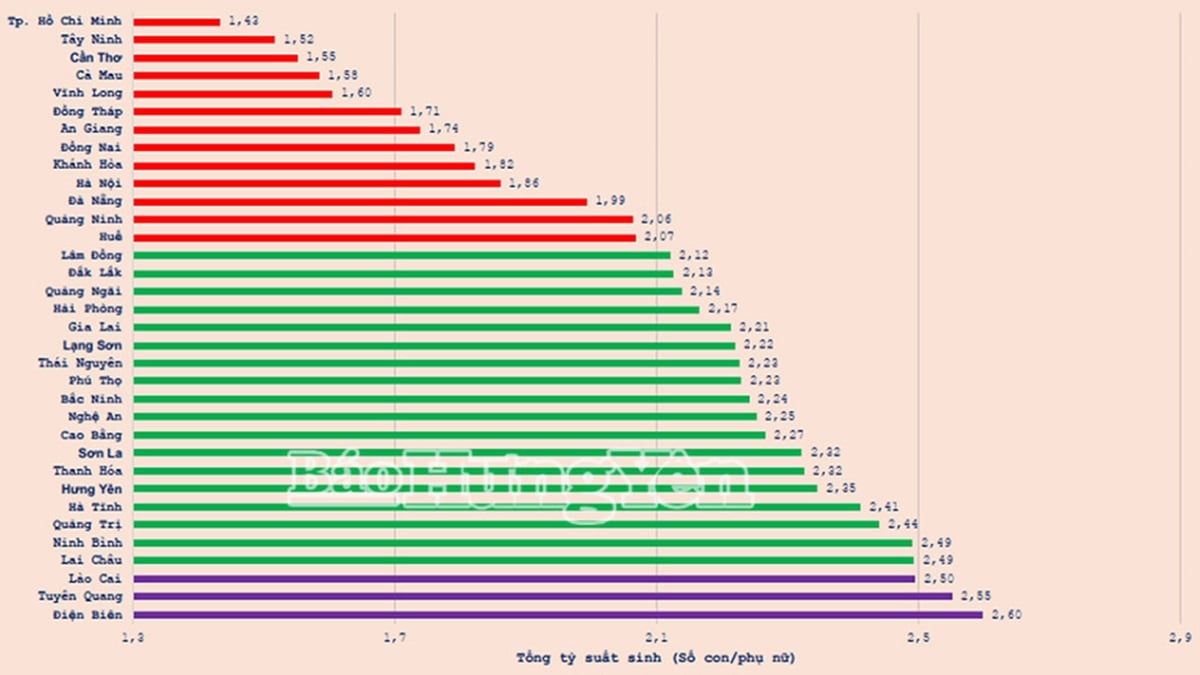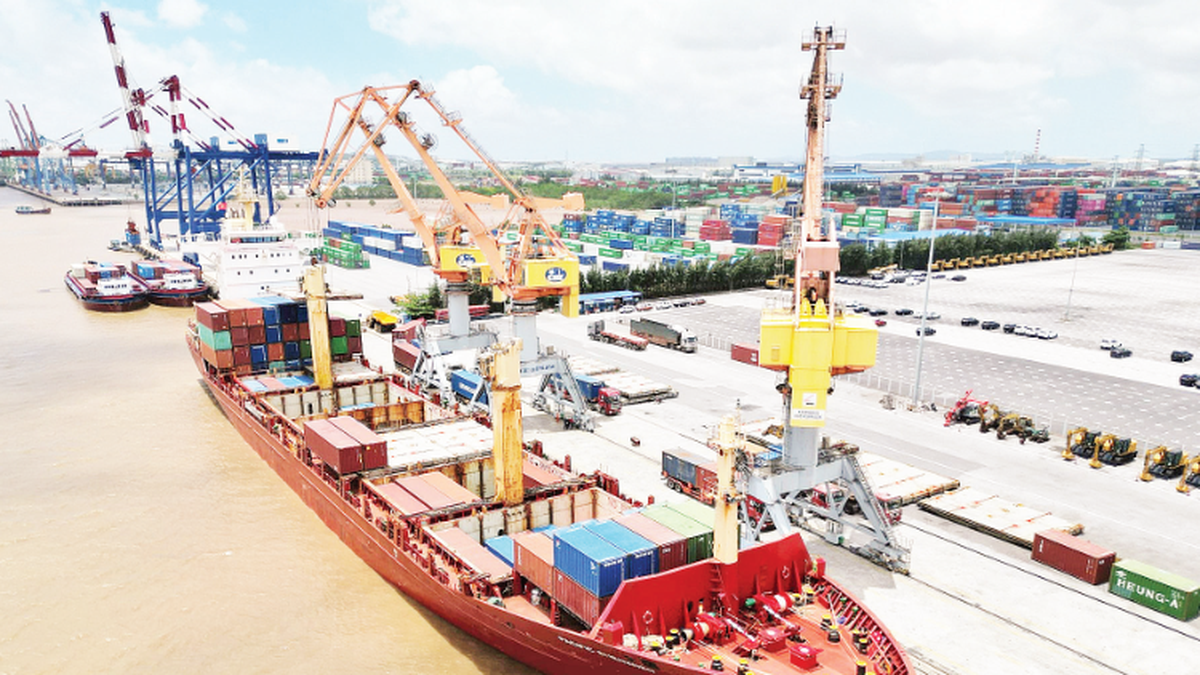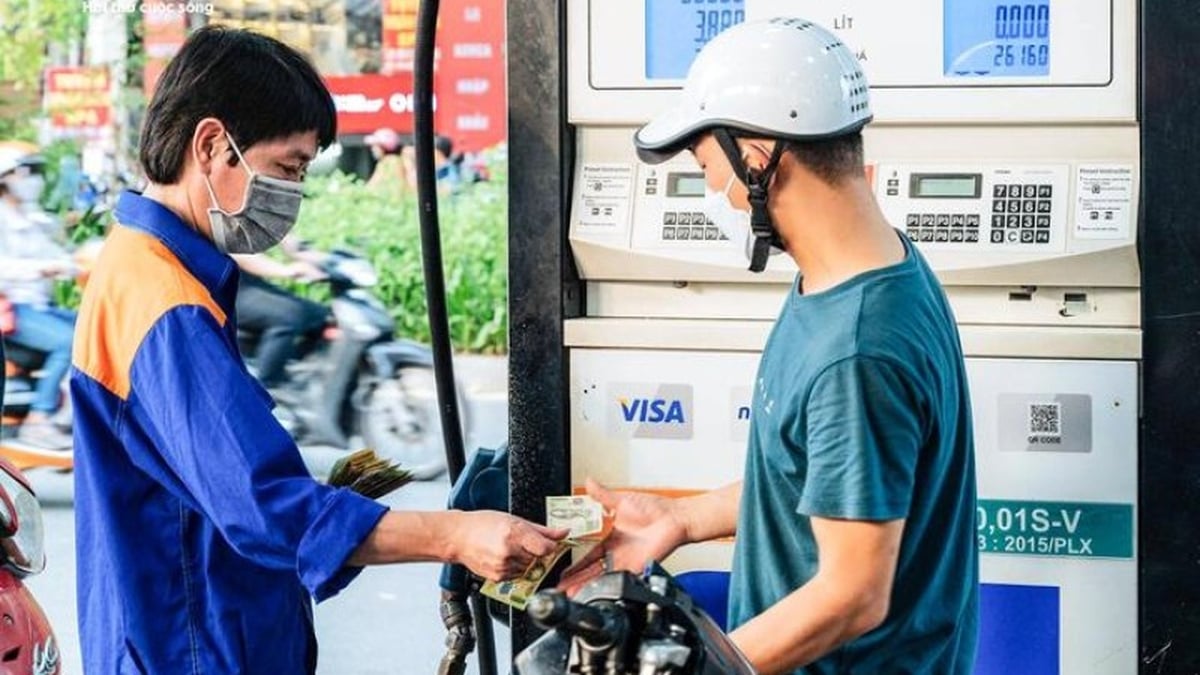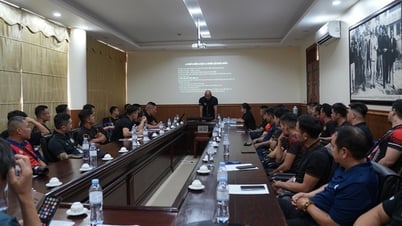Accordingly, the proposed tax rate for digital content produced and sold for foreign markets and foreign viewers is 0%. As for income from views in Vietnam: Individuals apply 2% VAT, 1% personal income tax; For businesses, VAT is 10% (According to Circular 40/2021/TT-BTC)
This proposal was proposed by the Digital Content Creation Alliance - DCCA (under the Vietnam Digital Communications Association) at the "Conference on Exploiting International Markets and Tax Policies for the Digital Content Creation Sector" held in Hanoi on March 31, 2023.

The proposed tax rate for digital content produced and sold for foreign markets and foreign viewers is 0%.
Digital content service industry "complains" about being taxed at both ends
At the conference, Mr. Nguyen Viet Tiep - Senior Tax Accountant (representing DCCA) analyzed a specific case for YouTube content creators. According to YouTube's policy, content creators in countries outside the US who register for tax with the US tax authority will have to deduct 30% of income tax for views coming from the US; YouTube does not deduct tax for views from other countries.
YouTube's policy also stipulates that content creators from countries outside the US who are not registered for tax in the US will have 24% of their income tax withheld for total global views. (This policy is intended to encourage YouTubers to register for tax in the US)
When the money flows to Vietnam, individual creators must pay an additional 7% (including 5% VAT and 2% personal income tax). Meanwhile, organizations/enterprises doing business on YouTube must pay a tax of 30% (including 10% VAT and 20% corporate income tax).
Thus, it can be seen that businesses/individuals operating on YouTube in Vietnam are having to pay double taxes on revenue from views in the US (because the US has already collected taxes), in essence, businesses/individuals are being taxed double.
Meanwhile, since 1992, Vietnam has signed Double Taxation Avoidance Agreements with 72 countries and territories (hereinafter referred to as Agreements), of which 60 Agreements have come into effect. The Double Taxation Avoidance Agreement between Vietnam and the United States was signed by the two countries on July 7, 2015.
Mr. Nguyen Viet Tiep, Senior Tax Accountant (representing the Digital Content Creation Alliance - DCCA) analyzed and made recommendations on taxes in the digital content creation industry.

Mr. Nguyen Viet Tiep, Senior Tax Accountant (representing the Digital Content Creation Alliance - DCCA) analyzed and made recommendations on taxes in the digital content creation industry.
3 tax recommendations for the digital content creation industry
Based on this reality, DCCA recommends that the General Department of Taxation consider applying tax policies to individuals/enterprises that are providing digital content services on international platforms. Specifically:
Apply the principle of avoiding double taxation on income from countries that have signed agreements with Vietnam to organizations/individuals doing business in digital content on global platforms. Recommend that the Government promote the early implementation of the Double Taxation Avoidance Agreement between Vietnam and the US.
For digital content produced and sold for foreign markets and foreign viewers, the VAT rate is 0% (VAT 0% for both individuals and businesses). For income from views in Vietnam: Individuals apply VAT 2%, personal income tax 1%; For businesses, VAT is 10% (According to Circular 40/2021/TT-BTC).
DCCA also recommends that the government consider supporting and promoting the digital content industry with preferential policies on: Tax, investment incentives, human resource training support... similar to the incentives for the software and high -tech sectors. Specifically, products in the software and high-tech sectors are being exempted from corporate income tax for 4 years, reduced by 50% for 9 years, along with many other investment incentives.
At the Conference, a number of speakers also expressed their views on the fair control of tax obligations when doing business on cross-border platforms.
Mr. Nguyen Thien Nghia, Deputy Director in charge of the Department of Information Technology and Communications Industry ( Ministry of Information and Communications ) said that to promote development, it is necessary to propose reducing personal income tax, rather than reducing corporate income tax. According to Mr. Nghia, this helps retain good experts in Vietnam.
“If we do not change the way we value talented people and good experts through tax policies, it will be very difficult for us to improve competitiveness and promote development in the ICT industry in general and digital content in particular,” Mr. Nguyen Thien Nghia emphasized.
Associate Professor, Dr. Ly Phuong Duyen - Senior Lecturer of the Academy of Finance, said that there are 9-12 different perspectives between business tax and tax on digital platforms. The biggest difference in tax activities on digital platforms is that it is difficult to manage, especially for cross-border transactions, issues of money going across borders are very difficult to manage. "Currently, we are still researching because for the digital economy, some principles are no longer correct, so experts are researching to change tax regulations to be more suitable in the near future" , Associate Professor - Dr. Ly Phuong Duyen emphasized.
According to Mr. Vu Tu Thanh, Deputy Executive Director of the US-ASEAN Business Council, the General Department of Taxation has applied IT to tax declarations. Currently, more than 30 foreign enterprises have made tax declarations on the public tax service portal. Therefore, Vietnamese enterprises operating on cross-border platforms do not need to pay taxes anymore because the platforms have proactively paid taxes. Vietnam will no longer deduct taxes but let the platforms proactively declare and pay taxes.
According to Mr. Vu Tu Thanh, after the platforms self-declared and paid taxes, many businesses realized that when they retained the deducted tax, the amount they had to pay was less than now, so the media said that this regulation increased service prices.
"In fact, the policy was introduced to prevent tax losses and not to negatively impact Vietnamese businesses. In fact, it is not a price increase. Previously, tax deductions should have been paid to foreign suppliers, but we kept them until they paid the tax, so we did not have to pay immediately. But now businesses have to pay taxes to the state. This is a change in cash flow, not in selling price," said Mr. Vu Tu Thanh.
Tra Khanh
Useful
Emotion
Creative
Unique
Wrath
Source































































![[Maritime News] More than 80% of global container shipping capacity is in the hands of MSC and major shipping alliances](https://vphoto.vietnam.vn/thumb/402x226/vietnam/resource/IMAGE/2025/7/16/6b4d586c984b4cbf8c5680352b9eaeb0)





































Comment (0)